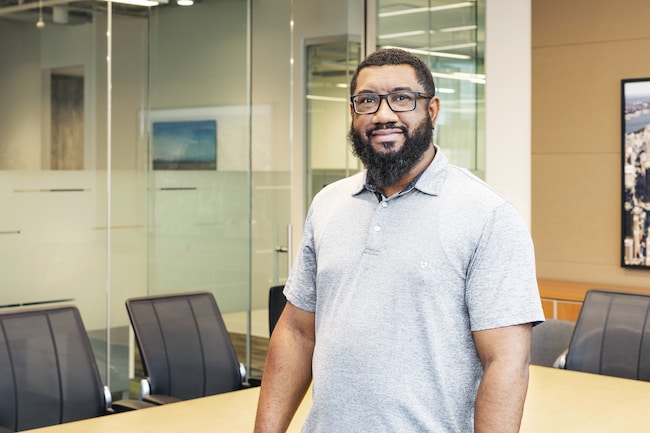Samantha DeBianchi LaViola scored her first valuable lesson in business as a second grader growing up in South Florida.
She was selling her toys and trinkets to classmates to earn money to spend at garage sales. Her hustle was going well for a while — until one of her classmates blabbed about her enterprise to a teacher. LaViola said she still remembers the day her young company crumbled within hours.
“We were all at recess and I was sitting at the hopscotch field, and I see my parents and teachers talking far away at the door,” she said in an interview.
The teacher told LaViola's parents about their daughter's entrepreneurial activities, and they arrived at school to dish out her punishment.
But being caught wasn't the most shameful part, LaViola said.
“I had to give everyone’s money back,” she said, and they got to keep her stuff.
'I just didn't have many friends that understood my brain'
Looking back, LaViola said, that day on the playground she realized, "I have to be picky about my clientele."
Today, LaViola's clients are high-wealth individuals looking to buy luxury homes in Florida. LaViola is the owner of DeBianchi Real Estate, an eight-person team in Fort Lauderdale. She opened the brokerage in 2012 and, one year later, she joined the cast of Bravo's real estate television show "Million Dollar Listing Miami."
LaViola said she was the not-so-popular kid at school because when everyone else wanted to play, she wanted to make money. LaViola said she dabbled in tennis but realized soon enough that the sport wasn't her true passion.
"I just didn't have many friends that understood my brain," she said. "I was dealmaking since I was 8 years old."
Her father gave a master class in negotiation
Long before LaViola became a real estate agent and a TV personality, she learned a second pivotal lesson while spending time with her father.
LaViola's dad took her to garage sales on weekends, and she watched him haggle. LaViola said listening to her dad became a master class in negotiation.
"I learned you never pay sticker price, and you always negotiate," she said. "I always enjoyed negotiating. You feel like you've won something. You bought it for what you wanted instead of what that seller demanded."
LaViola's business mind carried her into college, where she graduated with a communications degree from Florida Atlantic University. After college, she began working the door at nightclubs across South Florida. She eventually became a manager.
LaViola said working in nightclubs taught her how to create an environment where people would be comfortable and happy spending money. But by age 25, LaViola found herself physically and emotionally burned out. Her parents urged her to switch careers and join the real estate industry.
LaViola said it took her four tries to pass the real estate exam, but she finally earned her license and has been happy ever since.
Four questions
This interview has been edited and condensed for clarity.
For people moving to Florida, what should they know about the Sunshine State?
"It's a state that has something for everyone. You can find your world, your group — find everything that you’re looking for — whether it's sports or the arts. It’s a melting pot. The west coast — like Naples and Fort Myers — is completely different than the east coast. That's the quieter side of the state."
What's the main difference between selling luxury homes to high-income buyers and selling to the typical American?
"Luxury buyers tend to be more interested in how certain fixtures and appliances were manufactured, but they are also more likely to purchase a home that's not going to be their primary residence. It's really understanding the materials used. Understanding the craftsmanship. For these clients, it might be their third, fourth or fifth home. It might just be a vacation home. Other than that, there's not much of a difference. They want prompt responses. They expect you to make things happen quickly and for you to accommodate their schedule."
What made you finally realize that you wanted to leave nightclub work and go into real estate?
"I worked 24-7. I worked 20-hour days many, many days. All the operations are during the day, and then you're running it at night."
What skills, if any, were transferable from working at nightclubs to selling real estate?
"In nightclubs, you have to be very creative and really quick in problem solving and know how to stand out. It's marketing and PR. The same thing goes into real estate. Why is someone buying your property instead of your neighbors? It's all about the show and all about how it’s presented."


